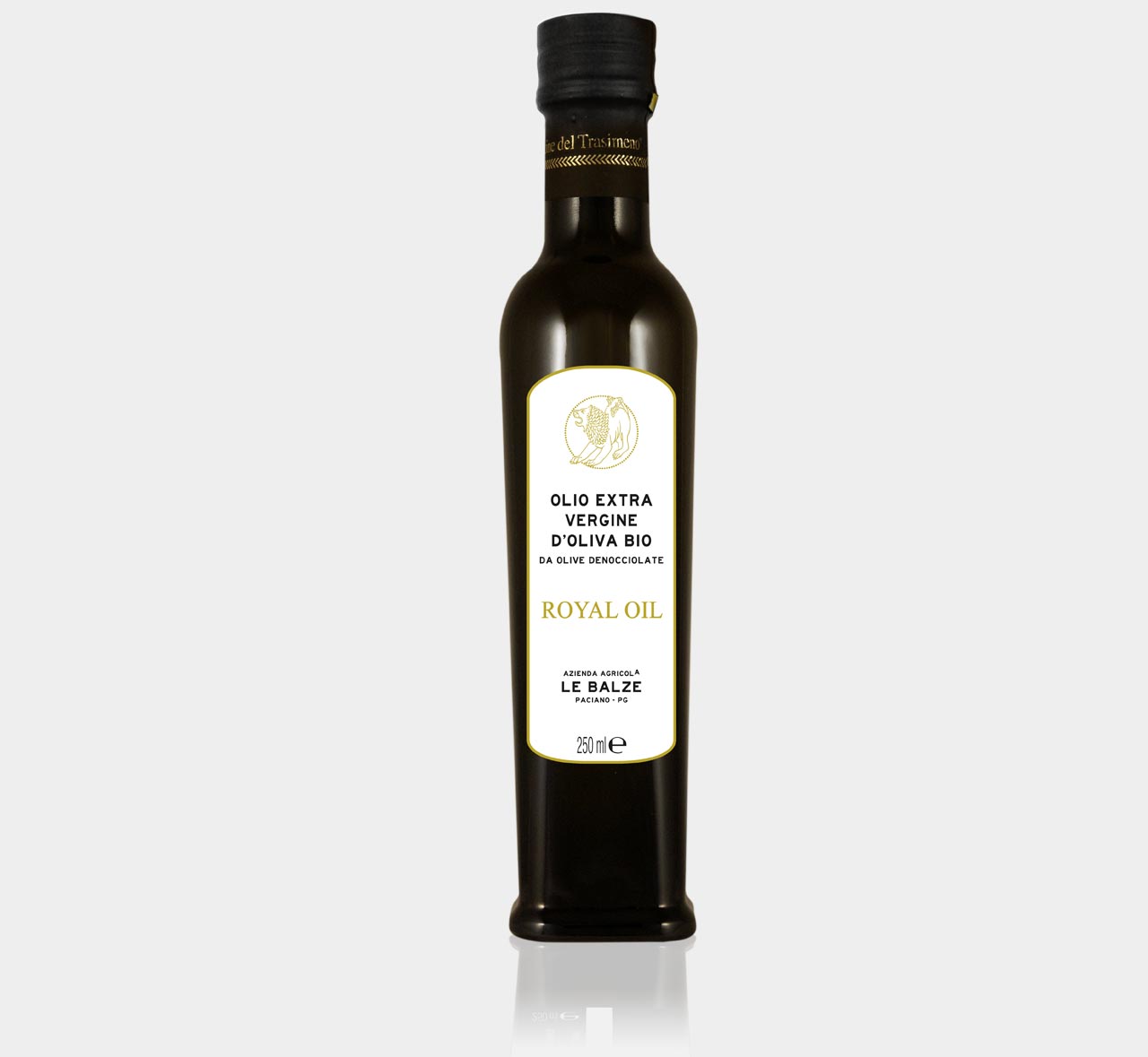The Grand Cru of our collection is the “Royal Oil”; this is the name we gave to an extra virgin olive oil made after the pit has been taken out of the olives before these last goes into the grinder.
The production process is longer than the usual, because after being washed, olives pass through a machine that separate the pit from the pulp.
Then, the pulp goes to the grinder, paste is getting pressed and oil is ready.
Pressing olives without pit has some advantages, the most significant are:
- On one side, the endosperm, which in olives is in the cotyledons (that means in the pit), contains some oxidants which counter the number of antioxidants naturally contained in the olives while in the grinder and during extraction of oil.
- On other side, it is avoided the situation of mechanical and thermic stress generated by the grinder, which has to crash a very hard wood, the pit; the grinder used in this situation is more gentle with olives.
Disadvantage on other side is that the missing grinded pit won’t help in draining oil from the paste and won’t help in breaking oleic cells.
In any case, we experience a lower yield per kilo of olives.
It is then a very high quality olive oil, which production is by consequence limited.
Differently from the normal extra virgin, this olive oil can be bottled almost as it is produced and doesn’t need the winter rest as the normal oil does: the deposit that is forming out of the normal extra virgin through the winter rest, is basically from the crashed stone and very few from the pulp.
Not needing the winter rest, Denocciolato keeps the typical taste of a freshly produced oil and its scent is extremely aromatic and persistent, perfect to enhance the taste of raw meat and vegetables.


